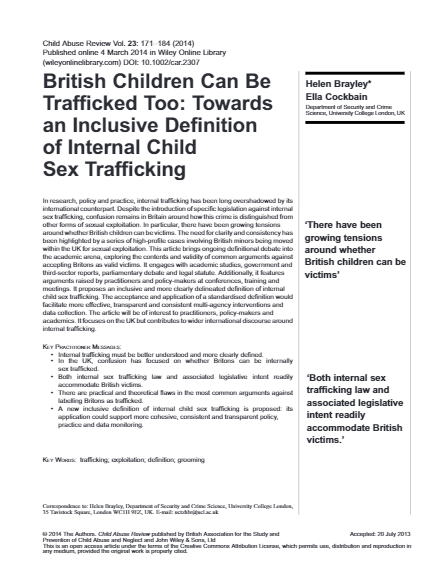In research, policy and practice, internal trafficking has been long overshadowed by its international counterpart. Despite the introduction of specific legislation against internal sex trafficking, confusion remains in Britain around how this crime is distinguished from other forms of sexual exploitation. In particular, there have been growing tensions around whether British children can be victims. The need for clarity and consistency has been highlighted by a series of high-profile cases involving British minors being moved within the UK for sexual exploitation. This article brings ongoing definitional debate into the academic arena, exploring the contents and validity of common arguments against accepting Britons as valid victims. It engages with academic studies, government and third-sector reports, parliamentary debate and legal statute. Additionally, it features arguments raised by practitioners and policy-makers at conferences, training and meetings. It proposes an inclusive and more clearly delineated definition of internal child sex trafficking. The acceptance and application of a standardised definition would facilitate more effective, transparent and consistent multi-agency interventions and data collection. The article will be of interest to practitioners, policy-makers and academics. It focuses on the UK but contributes to wider international discourse around internal trafficking.

